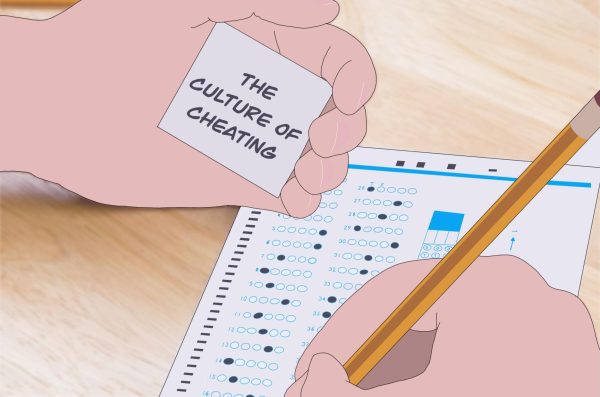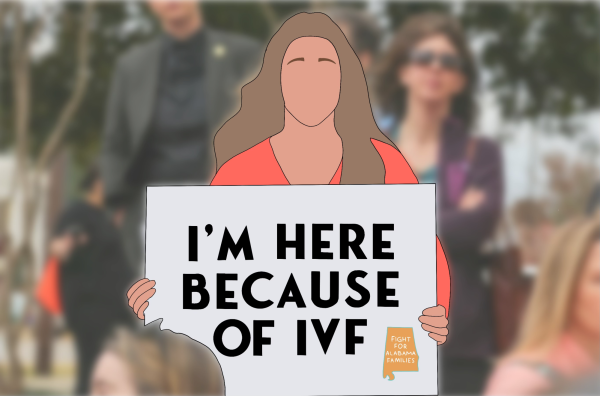An Uphill Battle for Affordable Education
Colleges are considered money eating machines, especially the ones that practice scholarship displacement because it makes it harder for students to pay the cost of attending.
Throughout the whole world, a college or university education is essential for job seekers, due to the fact that employers are becoming more demanding of requirements for employees. Many young adults and high school graduates that wish to further excel in their studies search for suitable universities where they can advance in their field of interest. Scholarships are a type of financial aid that are regularly rewarded to top-notch students for college or other school-related expenses. Many debates on scholarships have become controversial, but the one that affects millions of students across the nation is scholarship displacement. Many see this practice as an unfair treatment to students who have worked relentlessly for their scholarships.
Unfortunately for those hoping for a higher education, it comes with a price. The average cost of attending college is $33,480 throughout the United States. This amount is the student’s net price, also known as how much money they will pay for college. In fact, high school students are pushed towards trying their hardest, participating in activities and getting involved in the community for a better chance of winning a scholarship. Especially among middle and lower class students, scholarships are something students are persuaded to receive. The cost for basic tuition, not to mention admission, tends to be over the roof, as expressed by many seniors. That is why it is crucial for many students in lower income families to get financial aid because, without it, they cannot afford college or their dream school. Because of scholarship displacement, students are not only wasting their precious time stressing themselves out, but the financial aid they were meant to get ends up in the same place it started: colleges and institutions.
Considering the spectrum of varying scholarships, classifications and state laws, there are many controversies that cause debate. Apart from discrimination against certain applicants and rejecting students without proper justification, a big controversy is scholarship displacement. The practice is most concerning for students that receive financial aid through a private scholarship. Private scholarships are grants the school gives directly to the student; these scholarships often cause colleges to think that the student is not in dire need of extra financial help because they are already receiving a large amount of money from the school. In many cases, colleges remove money from extra financial scholarships; as a result, they do not give all the money from said scholarships to the applicant. Schools have different policies, which can alter the amount of money provided to students for financial aid, resulting in a gap of money the students cannot afford to pay.
“Scholarship displacement is not to the benefit of the student, which isn’t fair to them. College is already expensive as it is, so when a student earns a scholarship and gets it taken away from them, it is completely unfair because they worked hard for that money. Their hard work is going to waste,” sophomore Makyla Bell said.
A lot of colleges tend to give school loans, but some schools pay the student’s loans with the scholarship money once they finish learning, therefore eliminating the flexibility of the student regarding the money. However, the amount of money from the scholarships that is not used to directly pay for the loan goes straight into the college’s pockets. Moreover, administrations tend to claim that this actually reduces the amount of money the student will pay in the long run since they assume that students won’t use the money for their education, but instead on different unnecessary expenses.
However, administrations are using financial aid money without the consent of students to automatically pay tuition and loan payments, additionally taking away the extra money students were initially given in their scholarship. Another way colleges manipulate money is by replacing college grants with the scholarship’s worth, leaving the student with no resting money. To make do with displacing scholarship money, colleges can sometimes make adjustments or certain workarounds. For example, they can always raise the college’s cost of attendance, change the year in which the student can collect their receipts or reduce classifications to get into certain programs. All these rules, which terminally end in state laws, lead to many people’s critique of colleges, but much praise from private scholarship providers. Instead of scholarships paying for your loans, they simply replace the institutional aid that the college would provide. Not only does financial aid displacement put students at a disadvantage, but also any donors that donate to organizations. While most donors might think that their money will help young adults in their college career, the money ends up in the hands of the students’ institution of choice. Nonetheless, scholarship displacement only benefits colleges and corporations, while it’s doing a disservice to the students who worked hard for said scholarships and the thousands of citizens donating to these organizations. In fact, many students don’t get the financial aid that the federal government requires colleges to give them because of scholarship displacement.
Most colleges and administrations actually promote the questionable practice of scholarship displacement, meaning that it’s harder for students to go the college they actually want. Moreover, scholarship displacement could discourage students from trying their best since they will not benefit from scholarships if the school practices this policy. In addition, it also limits students in actual need of financial aid from getting a better education. Without a doubt, the reason why colleges practice scholarship displacement is for their own gain economically, not to mention that it’s a one billion dollar industry. In fact, there are many organizations and important figures, such as Larry Griffith of the United Negro College Fund, college aid expert Mark Kantrowitz and Michele Waxman Johnson, who believe that this practice is unfair and sets limits on students that depend on these scholarships.
I think that the bottom line with scholarship displacement is that it is an unfortunate practice. For our students particularly, it is quite sad because we have a lot of great students that go out and work very hard to get scholarships, and the idea would be that the money is to help them pay for college. However, colleges that practice scholarship displacement substitute the private scholarship money that they have received, and therefore reduce their aid. It honestly comes out as a wash, and the student is no better off for having received a scholarship- it’s really a destructive process and practice. I think that we need to work hard in the State of Florida to dispel this as much as we can in the hope that we will follow along with the state of Maryland, which has now made it impossible for institutions of higher learning to practice unfair scholarship displacement. — College Assistant Program (CAP) supervisor Elizabeth Stack said
Not only are there many examples of government and corporate officials highlighting the flaws and obvious need to get rid of this program, but there is also proof of reforms. The state of Maryland is now banning all colleges and universities from scholarship displacement, only allowing it if the financial aid is more than the attendance fees, or if the scholarship provider gives permission to do so. Maryland’s decision earned plenty of praise from students and social media users. After all, this monumental move from Maryland not only proves that there is no real need for scholarship displacement, but that slowly, we can all help perfect laws and remove unfairness in our governmental, criminal and educational systems. While there are still 49 more states to go, this is a big step for students and young adults that wish to apply to colleges without being robbed of their efforts.
[powr-poll id=1f369bd6_1508545821531]
Your donation will support the student journalists of Coral Gables Senior High School. Your contribution will help us cover our annual website hosting costs.

Daymara Fernandez is a staff writer for CavsConnect. This is her second year in Coral Gables Senior High and a sophomore in the International Baccalaureate...












